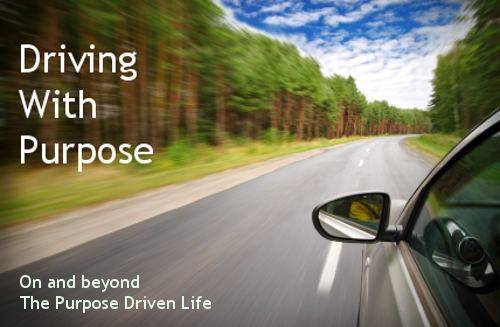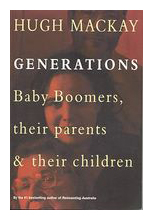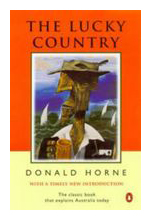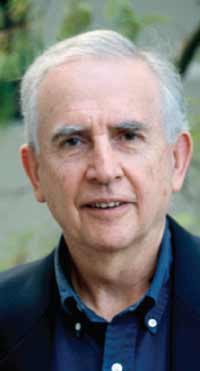People need more than bread for their life;
They must feed on every word of God.
Matthew 4:4 (New Living Translation)God’s… gracious Word can make you into what he wants you to be and give you everything you could possibly need.
Acts 20:32 (The Message)

Day 24 in The Purpose Driven Life is one day’s reading I’m not going to find easy to write up. I clearly am coming from a different place than Rick Warren when it comes to thinking about the Bible. But I’m sure we have a lot in common still.
Like many Christians around the world, Rick directly equates God’s Word with the Bible. Like many Christians around the world, I don’t agree with that simple equation, “God’s Word = Holy Bible”.
I don’t believe the Bible is alive. It is not the fourth member of the Trinity. But I passionately and thoughtfully believe that the Holy Spirit is alive, speaking to us in so many ways. And I believe that the Scriptures are used by the Holy Spirit to guide us, motivate us, and give us hope. Above all, they are used by the Holy Spirit to help us connect with Jesus Christ, the Word of God – the one through whom God communicates with us.
Rick says we must accept the authority of the Bible rather than basing our choices on unreliable authorities such as culture, tradition, reason or emotion. All four are flawed by the Fall, he says.
From what I can see as I read the Bible, the stories described within and the ways in which they are written up reflect cultural perspectives, the passing on of tradition, the development of thought about God, as well as a lot of emotion. On top of that, we use all those as we read and interpret the Bible. I agree – these are all flawed by our limited experience as well as our tendency to deceive ourselves. I think the writers of the material put together in the Hebrew and Christian scriptures, as much as they were inspired by the Spirit, were flawed and limited.
I think we should read the Bible with humility, listening carefully to the insights we bring with us from culture, tradition, reason and emotion.
Rick says I must assimilate the truth of the Bible. This is done by receiving God’s Word and accepting it with an open, receptive attitude. It is done by reading the Bible daily – so that we get to read of all of it often. It is done by researching or studying the Bible. It is done by remembering the Bible – memorising parts that will help us. It is done by reflecting on the Bible – meditating on it.
Hey I’m committed to the same principles, though I have found that legalism or driven attitudes around them do not bring life. I place my life under the authority of Jesus. I know that he doesn’t rule my life with a list of ‘must do every day’ tasks. His agenda for my life spans days, weeks, months and years.
The opening verse makes sense to me when I read it as:
“Jesus Christ can make you into what he wants you to be and give you everything you could possibly need.”
Rick says I must apply the principles of God’s Word. I like his suggestion that we write down an action step after reading the Bible. An action step that is personal (involving me), practical (something I can do), and provable (with a deadline to do it). That would be a useful tool to use in reading the Bible. It certainly helps avoid just growing in understanding without any application in real life.
Rick’s final question is helpful.
What has God already told me in his Word that I haven’t started doing yet? If I read “his Word” as Jesus Christ, it would become: “What has God already told me in Jesus Christ that I haven’t started doing yet?”

 Hugh Mackay’s Generations was published by Pan Macmillan Australia in 1997. It’s now out of print but is in most Australian libraries. In this research-based book Mackay gives us three slices of Australian life by describing the ‘Lucky’ Generation – born in the 1920s, the ‘Stress’ Generation – born in 1946-1955, and the ‘Options’ Generation, born in the 1970s.
Hugh Mackay’s Generations was published by Pan Macmillan Australia in 1997. It’s now out of print but is in most Australian libraries. In this research-based book Mackay gives us three slices of Australian life by describing the ‘Lucky’ Generation – born in the 1920s, the ‘Stress’ Generation – born in 1946-1955, and the ‘Options’ Generation, born in the 1970s. Donald Horne is author of “The Lucky Country”, first published in 1964 and revised in 1998. Horne warns his own generation that their prosperity has been more to do with luck than with good management or enlightened thinking. His book provides a radical critique of the philistinism, provincialism and dependence of Australian society.
Donald Horne is author of “The Lucky Country”, first published in 1964 and revised in 1998. Horne warns his own generation that their prosperity has been more to do with luck than with good management or enlightened thinking. His book provides a radical critique of the philistinism, provincialism and dependence of Australian society.

 I’ve been to a couple of Australian workshops on generations based almost entirely on Hugh Mackay’s book, “Generations: Baby Boomers, their Parents & their Children”. The biggest reason for this is the Australian base for Hugh’s research. This is not just an Australian take on American research. It’s the result of Hugh’s qualitative research over 40 years, conducted in conversation with small groups in living rooms around Australia.
I’ve been to a couple of Australian workshops on generations based almost entirely on Hugh Mackay’s book, “Generations: Baby Boomers, their Parents & their Children”. The biggest reason for this is the Australian base for Hugh’s research. This is not just an Australian take on American research. It’s the result of Hugh’s qualitative research over 40 years, conducted in conversation with small groups in living rooms around Australia.